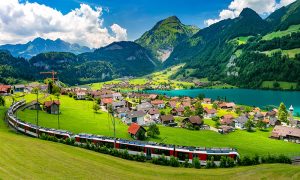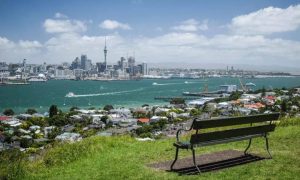Over the past few years, the term "digital nomad" has moved from niche to mainstream. More and more freelancers and remote workers are looking to achieve work-life balance while traveling the globe. Iceland, a stunningly beautiful and highly digitalized country in the North Atlantic, is quietly becoming a new favorite of digital nomads.
With the 2025Icelandic Teleworker VisaPolicy optimization and upgrading, digital nomads have ushered in a friendlier and more transparent migration path. This article will analyze in detail the application requirements, process, cost of living, and real-life experience of this visa, making it easy for you to plan your remote life in Northern Europe.
I. What is the Icelandic Telework Visa?
The Icelandic government has been piloting a remote work visa program since 2020, allowing remote workers or freelancers from non-EU/non-Schengen countries to legally reside in Iceland for up to 180 days (6 months). By 2025, the policy has been significantly expanded:
-
Visa validity can be extended up to 9 months (renewable in specific cases)
-
Support for spouses and children to apply at the same time and enjoy local education and medical services in Iceland.
-
Easier online application process, no need for frequent face-to-face interviews or proof of residence
This policy is particularly suitable for professionals working in IT, media, writing, consulting and other remotely controllable jobs to get a change of lifestyle without having to give up their home country jobs.
II. Updated list of application requirements and documents for 2025
Below are the basic requirements and documents to apply for a Digital Nomad Visa for Iceland:
✅ Application conditions:
-
Non-EU/non-Schengen citizenship
-
Monthly net income not less than ISK 1,000,000 (approx. USD 6,800)
-
Proof that you work for a foreign company or are a freelancer with stable projects
-
clean bill of health
-
Have travel insurance to cover the period of residence in Iceland
-
May not be employed in local Icelandic companies on this visa
📄 Required Submissions:
-
valid passport
-
Employment contracts or customer contracts
-
Proof of income (bank statements, tax statements)
-
Certificate of no criminal record (certified translation)
-
Accommodation Booking Information
-
Medical insurance vouchers
-
Visa application form (submitted online)
The visa application fee is approximately ISK 12,200 (approximately USD 80) and is usually approved within 2-4 weeks.
III. Cost of Living Fact Sheet: An Overview of Digital Nomads' Expenditures in Iceland
Although Iceland has unrivaled scenery and excellent security, as one of the Nordic countries, the cost of living is not exactly low. Here's how much a single digital nomad spends on average per month in Reykjavik (in US dollars):
| sports event | Average monthly cost |
|---|---|
| Rental (single room or small apartment) | $1,200 – $1,800 |
| Groceries | $350 – $500 |
| Public transportation/car rental | $100 – $200 |
| Internet + Telephony | $60 – $100 |
| medical insurance | $100 or so (private program) |
| add up the total | Approx. $2,000 - $2,700 |
It is recommended to have at least three months' worth of living reserves for emergencies.

IV. Why Iceland is good for digital nomads
In addition to visa facilitation, Iceland has a number of unique advantages for remote workers:
-
Wide Internet coverage and stable speeds: Seamless office work even in remote towns
-
Excellent natural environmentGlaciers, hot springs, the aurora borealis, the true meaning of "work and travel".
-
Social security is excellent.: The world's best security and safety for single women.

-
Valuing privacy and freedom: The government is very protective of personal privacy and has very little bureaucracy.
Moreover, the local people have a very high prevalence of English, and living without knowing Icelandic is basically hassle-free.
V. Challenges in reality: you also need to anticipate in advance
However, there is no denying that as beautiful as Iceland is, life is not perfect:
-
Cold and variable climate: Often windy, blizzardy, challenging for southerners
-
Limited social circle: Small population and conservative culture make it difficult to establish a circle of friends quickly
-
High prices continue to rise: Travel fever pushes up accommodation and food prices, rational spending planning needed
If you're used to socializing and a climate with four distinct seasons, Iceland's sense of isolation may take some getting used to.
VI. Trends and future possibilities in 2025
groundIcelandic immigrantsThe Bureau's data released in the first half of 2025 shows that digital nomad visa applications have increased by approximately 271 TP3T from 2023, with the largest number of applicants coming from the United States, Canada, Australia and China. In the future, the Icelandic government may:
-
Introduction of a longer distance visa program (1 year or more)
-
Construction of a "co-location village" dedicated to digital nomads
-
Partnering with tech companies to promote the work-while-traveling lifestyle
In other words, Iceland is slowly transforming from a "land of ice and fire" into a "paradise for the digitally free".






